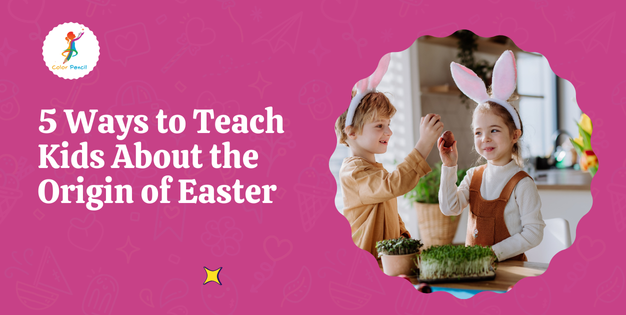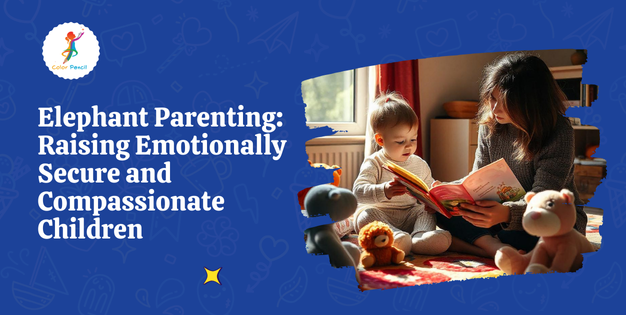
5 Ways to Teach Kids About the Origin of Easter
Curious about what’s the origin of Easter and how to make it meaningful for kids? You’re not alone. While Easter often brings images of chocolate

Exploring the Power of Gentle and Nurturing Parenting
While it may seem that successional achievements and intense competition fuels the world we live in, there is a style of parenting known as elephant parenting that differs from the norm. This style of parenting draws its inspiration from the care that elephants show to their young. Such parents focus deeply on emotional security and empathy, showing love beyond expectations.
Let’s explore what elephant parenting is, the beliefs behind it, its advantages, common concerns, and how to practice it intentionally.

Nurturing requires empathy, patience, and protection and is about fostering a nurturing caring environment. Calm and kind elephant parents tend to the emotional needs of their children and make great lengths to ensure a wonderful emotional atmosphere filled with love for their children.
Children from calm and kind responsive families do not need to meet arbitrary goals require meeting predetermined goals. Such calm and kind responsive families encourage free exploration of the world while developing a strong and resilient self-regard.
Each of these parenting styles emerge from personal life experiences. Most ‘elephant parents’ agree and believe that the kids do best when loved, supported, and nurtured in a safe environment. Children during their early stages of life need proper bonding and learning. Thus, these parents encourage explorations without setting strict boundaries.
On the other hand, a person who lacked emotional support during childhood warmth typically turns to the style of ‘elephant’ parenting as a means to provide for the warmth they never experienced.

When practiced with care, elephant parenting offers several meaningful benefits for both the child and the parent:
Children raised with this approach often feel deeply valued and loved, which provides a solid foundation for healthy relationships and self-confidence later in life.
As is the case with all parenting techniques, elephant parenting carries certain difficulties, especially if practiced in a misbalanced way:
It should be highlighted however that granting emotional safety does not mean the child should be protected from discomfort of any kind. Overcoming small difficulties, within reason, is essential to one’s growth.
Elephant parenting can be incredibly powerful when combined with age-appropriate limits and gentle exposure to life’s natural challenges.
Encourage your child to try new things, take small risks, and solve simple problems independently, while being available for guidance.
Boundaries provide children with a sense of structure and predictability, which in itself contributes to emotional security.
Help your child name, express, and manage emotions through calm conversations and by modeling healthy emotional regulation.
Protect when necessary, but allow children to experience appropriate challenges that help them build confidence and problem-solving skills.
Elephant parents tend to prioritize their children’s emotions. Remember, your well-being directly influences your ability to parent with patience and warmth.

Elephant parenting is especially helpful:
In these circumstances, the emotional safety elephant parents provide can help children navigate difficulties with trust and resilience.
Feeling Overwhelmed? Let’s Talk! Join Our Parent Forum and Get Expert Advice & Support!
It’s not indulgence or spoiling an elephant. Parenting an elephant is more about nurturing a bond, providing emotional security, and loving them unconditionally. Parents can achieve a balanced approach by offering empathy alongside gentle limits, fostering gradual independence. This way, parents can nurture emotionally secure children who can competently navigate the world.
No two children are alike, and the best aspect of parenting is tailoring your approach to each child’s needs. The essence of elephant parenting is straightforward; caring for the child includes being present, listening and trusting the child’s innate potential.